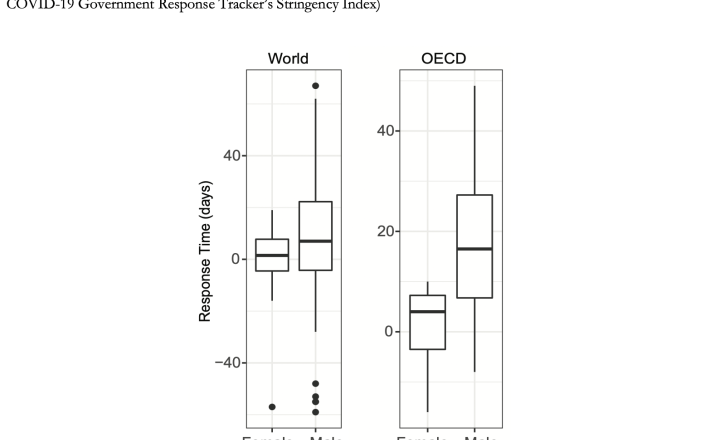COVID-19 and gendered governance: countries led by women did not employ more stringent strategies than those led by men – but they did act faster
Source: London School of Economics and Political Science
Mette Marie Staehr Harder and Christoffer Bugge Harder examine whether countries led by women applied more extensive measures to combat COVID-19 than those led by men. While they find no indications that the former applied more extensive health responses over time, OECD countries led by women did enact their respective maximum shutdown measures significantly more quickly than those led by men.
In spring 2020, a global narrative that female heads of government were better at fighting COVID-19 emerged. One such prevalent narrative was the idea that female heads of government had applied more extensive response strategies than their male colleagues. In a recent study, we show that this is not true: using the Oxford COVID-19 Government Response Tracker dataset, we find no indications that female leaders apply more extensive shutdown measures or health responses over time. However, within the period 1 January and 25 June 2020, OECD countries led by women did enact their respective maximum shutdown measures significantly more quickly than countries led by men.
Click here to read the full article published by London School of Economics and Political Science on 29 September 2020.

Mette Marie Staehr Harder and Christoffer Bugge Harder examine whether countries led by women applied more extensive measures to combat COVID-19 than those led by men. While they find no indications that the former applied more extensive health responses over time, OECD countries led by women did enact their respective maximum shutdown measures significantly more quickly than those led by men.
In spring 2020, a global narrative that female heads of government were better at fighting COVID-19 emerged. One such prevalent narrative was the idea that female heads of government had applied more extensive response strategies than their male colleagues. In a recent study, we show that this is not true: using the Oxford COVID-19 Government Response Tracker dataset, we find no indications that female leaders apply more extensive shutdown measures or health responses over time. However, within the period 1 January and 25 June 2020, OECD countries led by women did enact their respective maximum shutdown measures significantly more quickly than countries led by men.
Click here to read the full article published by London School of Economics and Political Science on 29 September 2020.